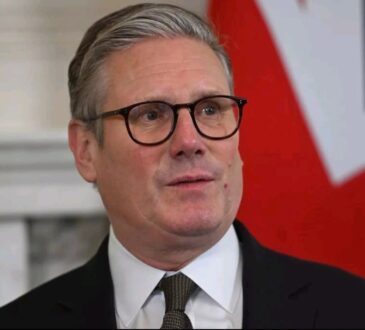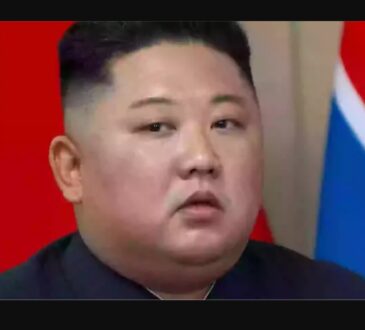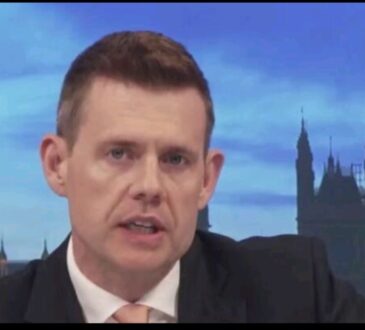What will Happen to Boris Johnson now that he has Resigned?: Here Are Few Things That are likely to Happen As Boris Johnson Resign
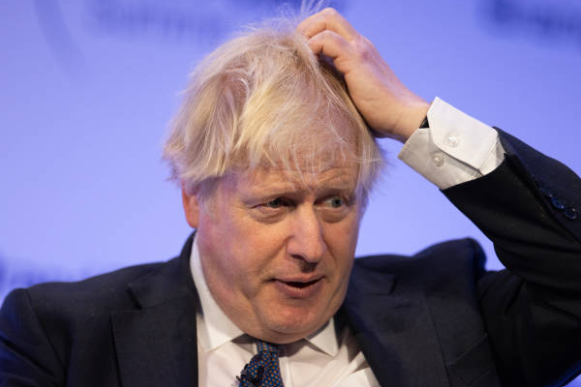
What will Happen to Boris Johnson now that he has Resigned?: Here Are Few Things That are likely to Happen As Boris Johnson Resign
Boris Johnson recently announced his resignation from the House of Commons, and his statement was quite lengthy, consisting of over 1,000 words. As usual with Johnson’s speeches, there is a lot of underlying meaning and hidden messages.
In his statement, Johnson tries to shape public opinion about the privileges committee report, which is investigating whether he lied to Members of Parliament about breaking lockdown rules. Although he has seen the report, it has not been made public yet. Johnson’s main message is that regardless of the evidence, he and his allies will always claim that he has been wronged.
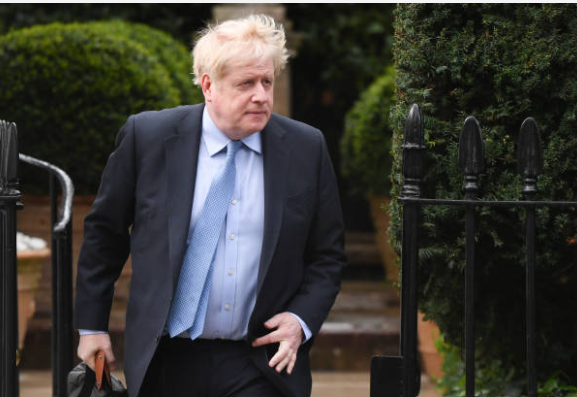
Johnson asserts that when he spoke in the Commons, he believed he was telling the truth and was speaking based on the information he had been given, just like any other minister. He claims that he corrected any inaccuracies as soon as he could, and he emphasizes that he, along with other senior officials and ministers, including the current Prime Minister and Chancellor, believed they were acting within the law.
He expresses his disappointment with the privileges committee, stating that they have ignored the truth from the beginning and have been determined to find him guilty, regardless of the facts. He compares the committee to a kangaroo court, implying that they have not been fair or impartial in their proceedings. This theme of being a victim of a conspiracy is reminiscent of former US President Donald Trump.
Johnson also criticizes the committee members, especially the chair, for expressing prejudiced views about his guilt before seeing the evidence. He suggests that they should have recused themselves from the investigation. He admits that it was naive of him to believe that these proceedings would be useful or fair, but he wanted to have faith in the system and vindicate what he believes to be the truth.
He goes on to claim that there is a wider plot to remove him from politics, driven by those who oppose Brexit and want to reverse the 2016 referendum result. Johnson believes that his removal is just the first step in this plan. He points to the appointment of Sue Gray, who investigated gatherings in No 10, as the Labour leader’s chief of staff designate, and the fact that Gray’s chief counsel, Daniel Stilitz, was a strong Labour supporter who made personal attacks against him.
Johnson expresses concern about the current state of the Conservative Party, noting that its majority in the polls has significantly decreased since he left office. He calls for the party to regain its momentum and belief in what the country can achieve. He advocates for a pro-growth and pro-investment agenda, lower business and personal taxes, and a return to being a true conservative government.
He questions why the UK has abandoned the prospect of a free trade deal with the US and scrapped measures related to housing, EU directives, and animal welfare. He emphasizes the importance of delivering on the promises made in the 2019 manifesto, which was supported by millions of people, and he reminds everyone that more than 17 million people voted for Brexit.
Johnson expresses his sadness at leaving parliament but states that he is being forced out by a small group of people without evidence to support their claims and without the approval of Conservative party members or the wider electorate. He believes that a dangerous precedent is being set.
In response to Johnson’s resignation and his criticism of the privileges committee, Sir Chris Bryant, the chairman of the committee, argues that the former prime minister’s comments are an attack on the entire House of Commons. He suggests that Johnson’s behavior could lead to further contempt of Parliament charges. Angela Rayner, the deputy leader of the Labour Party, rejects Johnson’s claims of an unfair investigation and defends the committee’s credibility.
The Privileges Committee is due to meet on Monday to discuss the timetable for publishing its report, despite Johnson’s resignation. While the report’s findings are not yet known, Sir Chris Bryant suggests that while the report’s findings are not yet known, Sir Chris Bryant suggests that it is likely to be published in the near future. He emphasizes that the committee has followed proper procedures and conducted a thorough investigation into the allegations against Johnson.
The reaction to Johnson’s resignation has been mixed. Supporters of the former prime minister see his departure as a loss for the Conservative Party and a blow to Brexit. They echo Johnson’s claims of a conspiracy against him and express concern about the direction of the party without his leadership.
Critics, on the other hand, argue that Johnson’s resignation is a long overdue consequence of his actions. They accuse him of misleading the public and undermining trust in the government during a critical time. They believe that the privileges committee’s investigation is necessary to hold Johnson accountable for his alleged misconduct.
The resignation of a prominent figure like Boris Johnson has significant implications for British politics. It creates a vacancy in the House of Commons, which will trigger a by-election in Johnson’s constituency. This will provide an opportunity for another candidate to step into the political arena and potentially reshape the dynamics in that particular district.
Furthermore, Johnson’s departure from the House of Commons raises questions about his future political ambitions. Some speculate that he may continue to be involved in political matters through other means, such as writing books, giving speeches, or participating in public debates. Others believe that he may eventually make a comeback and seek a return to political office in the future.
Overall, Boris Johnson’s resignation from the House of Commons and his statement regarding the privileges committee report have sparked intense debates and further divided public opinion. The publication of the committee’s findings and the subsequent developments in British politics will shed more light on the implications of Johnson’s departure and the potential consequences for the Conservative Party and the broader political landscape.
Now that Boris Johnson has resigned from the House of Commons, a few things are likely to happen:
- By-Election: They will hold a special election in Johnson’s area to choose a new person to represent them in the House of Commons. This election will fill the empty seat that Johnson left behind. The exact date of the election will depend on the rules and processes they follow in that area.
- Choosing a New Leader: The Conservative Party, which Boris Johnson belongs to, will need to pick a new leader. They will have a contest where the members of the party vote for their favorite candidate. The person who gets the most votes becomes the new leader of the party. This new leader will probably become the Prime Minister too.
- Changing the Government Team: Once the new leader is chosen, they have the power to make changes to the team of people who run the government. They might decide to keep some of the current members or replace them with new people. The goal is to build a team that shares the new leader’s ideas and plans.
- Government Plans: Boris Johnson’s resignation could lead to changes in the government’s ideas and priorities. The new leader might have different plans and goals for the country. This could mean that they will make changes to the current plans or create new ones.
- Politics in the UK: Boris Johnson’s resignation might have a bigger impact on the politics of the United Kingdom. It could affect what people think about the government, how the Conservative Party works, and how different political parties relate to each other. We will have to wait and see how his resignation changes the balance of power and the direction of politics in the country.
What will Happen to Boris Johnson?
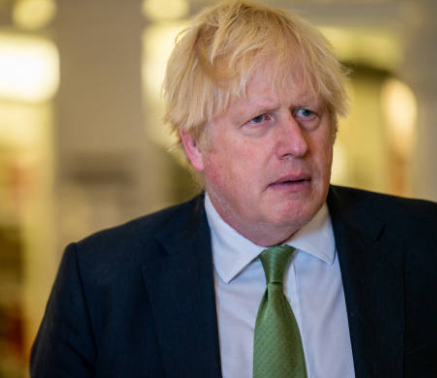
After Boris Johnson’s resignation from the House of Commons, he will no longer hold a seat in Parliament. However, his political career is not necessarily over. Here are a few possibilities of what could happen to Boris Johnson:
- Future Political Roles: Even though Johnson has resigned as a Member of Parliament, it doesn’t mean he can’t hold other political positions in the future. He could potentially be appointed to a different government role or seek election in a different constituency in the future.
- Conservative Party Influence: As a prominent figure within the Conservative Party, Johnson may continue to have influence and play a role in shaping the party’s direction. Former politicians often have opportunities to offer guidance and insights based on their experience.
- Public Speaking and Advocacy: Boris Johnson may choose to engage in public speaking engagements, write books, or contribute to media outlets. Given his experience as a political leader, he could provide commentary and analysis on political matters or advocate for specific causes.
- Private Sector Opportunities: Former politicians often find opportunities in the private sector, such as serving on corporate boards, advising businesses, or pursuing entrepreneurial ventures. Johnson’s connections and experience may open doors in various sectors.
- Personal Life: Johnson may choose to focus on his personal life and take a break from active politics. Resigning from Parliament could allow him to spend more time with family, pursue personal interests, or engage in charitable work.

